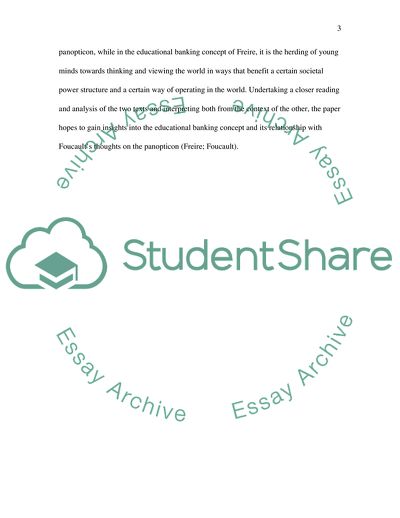Cite this document
(Freires Banking Concept of Education Through the Lens of Foucaults P Assignment, n.d.)
Freires Banking Concept of Education Through the Lens of Foucaults P Assignment. Retrieved from https://studentshare.org/education/1853407-panopticism-by-michel-foucault
Freires Banking Concept of Education Through the Lens of Foucaults P Assignment. Retrieved from https://studentshare.org/education/1853407-panopticism-by-michel-foucault
(Freires Banking Concept of Education Through the Lens of Foucaults P Assignment)
Freires Banking Concept of Education Through the Lens of Foucaults P Assignment. https://studentshare.org/education/1853407-panopticism-by-michel-foucault.
Freires Banking Concept of Education Through the Lens of Foucaults P Assignment. https://studentshare.org/education/1853407-panopticism-by-michel-foucault.
“Freires Banking Concept of Education Through the Lens of Foucaults P Assignment”. https://studentshare.org/education/1853407-panopticism-by-michel-foucault.


